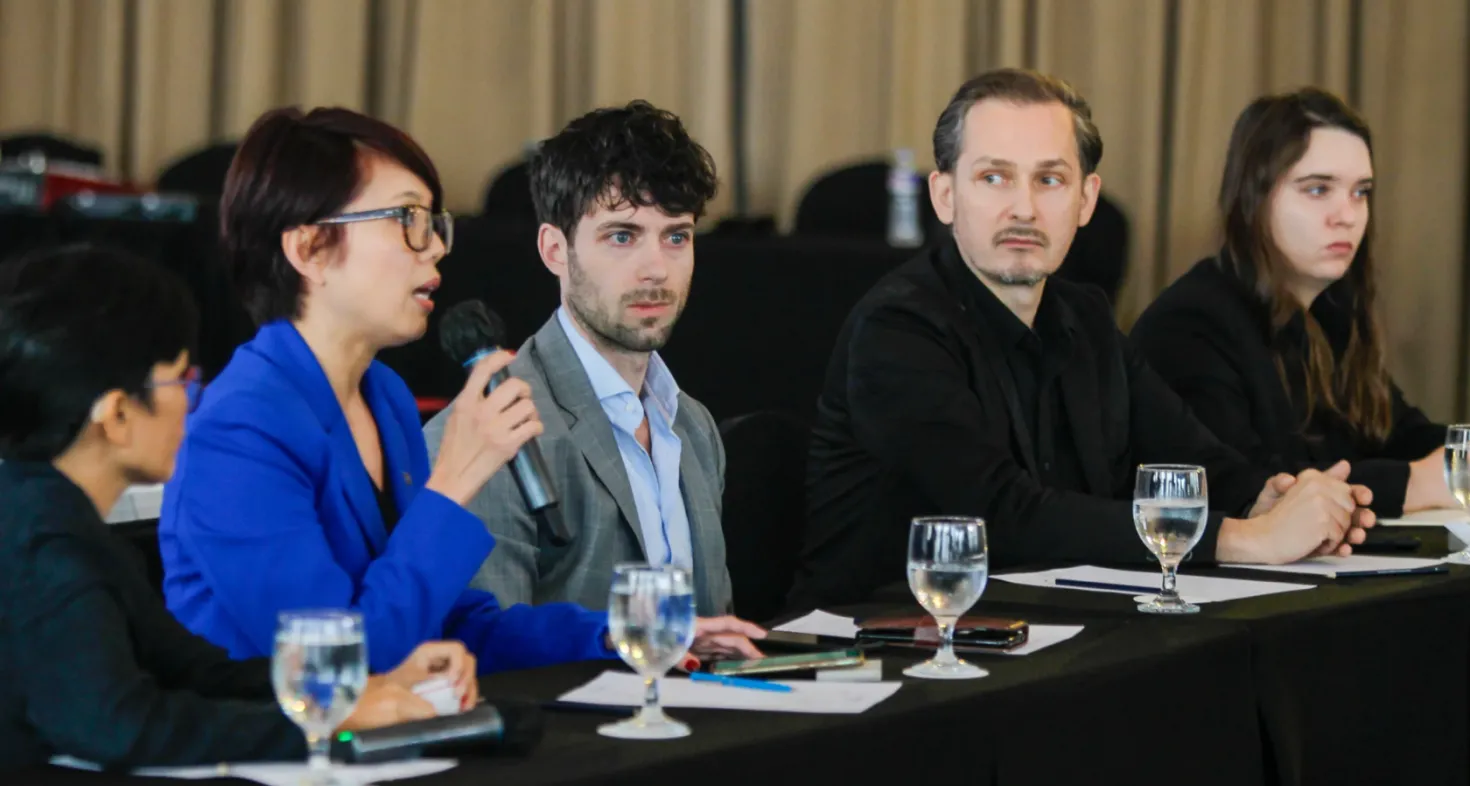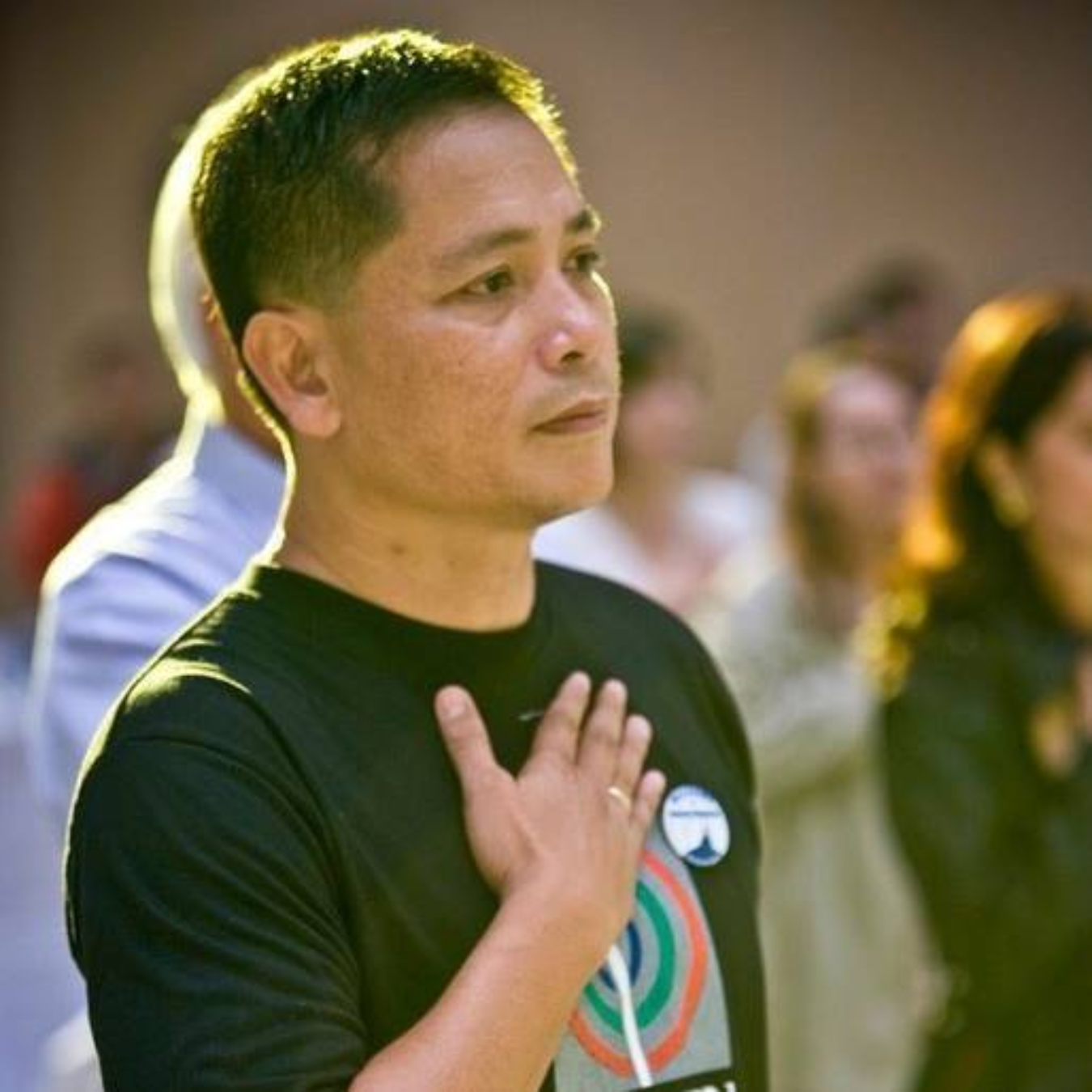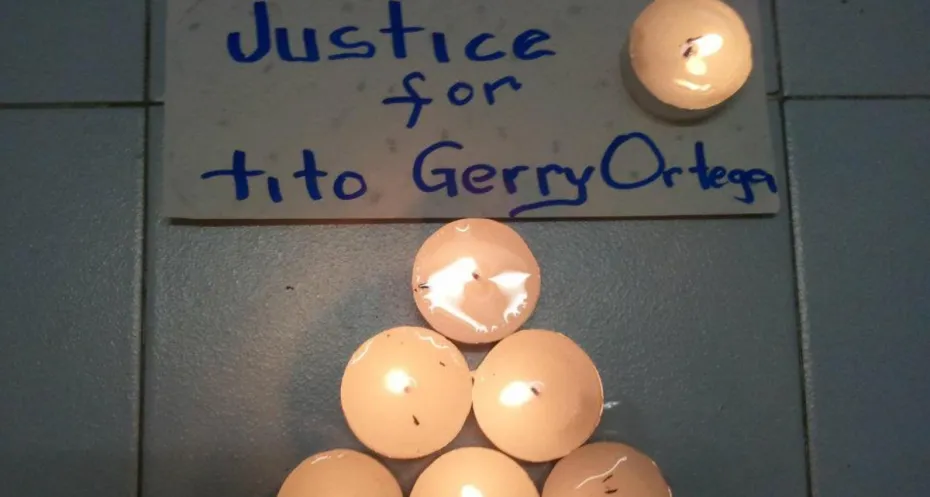
A new attempt at justice for Philippine journalist Gerry Ortega
Philippine journalist Gerry Ortega was shot and killed in 2011, and his murder was never solved. Jos Bartman, researcher of Free Press Unlimited's cold case investigation team 'A Safer World For The Truth', dove into his case. Last week he went to the Philippines to speak to the local authorities in person in a new attempt for justice for Gerry Ortega.
On the morning of 24 January 2011, Gerry Ortega was shot and killed in Puerto Princesa City, while shopping in a thrift store. The aftermath of the murder follows a pattern that haunts the Philippines; while the hit men who murder journalists are often arrested, the powerful mastermind, in this case Joel T. Reyes, escapes justice. We speak to Jos Bartman who can tell more about who Ortega was and why he was killed.
Gerry Ortega was a journalist with a dedication towards environmental issues, for which he advocated on his own radio programme Ramatak. He specifically focused on corruption of the former Palawan governor Joel T. Reyes (2002-2011). Jos Bartman: “With Ramatak Gerry Ortega had a way to spread the word to quite an extensive audience. People were taking Ortega's voice seriously. As a result, Reyes lost votes - enough to lose the election. Ortega was critical and had an impact in politics, and I think that cost him his life.’’

Journalists and independent media have been under threat in the Philippines for a long time. In 2023, the Philippines was ranked 132 out of 180 on the World Press Freedom Index of RSF. How would you describe the working conditions for journalists in the Philippines?
‘’I would say the Philippine media is free to some extent. There is a vibrant media environment but it is also repressed, attacked and very violent. Paradoxically, most journalist murders are committed in this context of relative freedom. Journalists are invited to publish about things of public interest, but there are also actors that are willing and capable of silencing them. It is obviously very violent when certain actors like organised crime and local politicians come together and have the ability to suppress journalists whenever it suits them.’’
You said this case was different from the other cases you've investigated. Can you explain why?
‘’This was a really interesting investigation and, in a way, new for us. Usually we investigate cold cases of journalist murders, and often we are able to find new information about the murder that sheds light on who committed and masterminded the murder. Then we try to do something with that information. We try to revive that case, either by going to the police, going to a prosecutor or going to court. There are different routes.”
“In the case of Ortega, this was quite different because we knew basically what happened. There was evidence and the investigation was relatively good if you compare it with the global standard of investigations into journalist murders. The entire hit team was arrested and convicted, so there was partial justice. However, the alleged mastermind was able to evade justice up to today.’’
How is it possible that he has not been arrested yet?
“The evidence against Reyes is quite overwhelming, but he's been able to frustrate and delay the legal process. This has been a very politicised case in which certain political actors tried to get the case on track, and others protected Reyes. Up to today, Reyes has very powerful friends and there is clear evidence that his protection network allowed him to evade justice.’’

Where is Joel T. Reyes now?
“There was a warrant against Reyes in 2022, but he was not arrested. We knew from local sources that he was staying in Palawan, the same island where Ortega was murdered. That means Reyes was not in hiding. That same year, he even participated in the governorship election, and it was not implausible that he would win it. He ended up coming third in the gubernatorial elections. For us, it is inconceivable that this man was not arrested. This says enough about the context and wickedness of this case.
Now, in 2024, we find ourselves in a similar situation. After the arrest warrant in 2022, there was a temporary restraint order that lifted the arrest warrant, but since last December there has been another standing arrest warrant against Reyes. We know where he is and the Palawan regional court is able and willing to convict Reyes. However, Reyes is now trying to get the case transferred to another court. Our contacts in the Philippines fear that this is because he is able to work with judges in particular courts. If he is arrested, which has not happened yet, it is not clear which court will hear the case.”
Transferring the case to another court seems like evidence on its own. Can we say something about this process?
“It's not unreasonable to assume that he's also able to exert influence over the judiciary. However, this is something that we can't observe. Our approach is evidence-based, which means that we try to reinvigorate a journalist murder with new evidence. This means that we use information about things that we can observe and not about things that are likely or probable. And it is particularly tricky to criticise the judiciary. In my opinion you can criticise certain judgements, but not the intentions of a judge. Especially not without evidence. I'm very willing to raise concerns about it but I don't think it's a debate we should have with the authorities. That's just not the most effective route.”
The murders that you and your team investigate, have been committed a long time ago. Gerry Ortega’s murder, for example, was committed 13 years ago. How can you still make an impact if it happened such a long time ago?
“If Reyes gets convicted, it would be a huge victory for the entire journalistic community in the Philippines and even globally. There is evidence that Reyes sent a message to the middleman with ''Is the job done?" to which he received a reply with ''Job is done''. It's a bit of a vague code language but I think it's pretty clear what’s being said. When you have this evidence on the table and a mastermind still running free, it just sends out a signal to the entire journalistic community.
I think justice always has an impact, regardless of the case. Obviously for the family, and the journalistic community, but some cases are also just very emblematic. The Ortega case is a good example of that. The case is emblematic especially because there has been no justice for 13 years. This also makes the case more interesting for the media. It engages not only Palawan but the entire Philippine public. It says something about what powerful people can get away with and how the legal system works. It tells more than just the violence against journalists.”
These are heavy topics. How do you deal with that personally?
“We have a really nice team in Amsterdam. We talk about these cases all the time. That makes it definitely not a lonely job. And I don't experience it as something extremely heavy, to be really honest. We investigate murder, sometimes torture or abuse, but I still keep some sort of distance and make sure that not every story emotionally lands. I think it is good, maybe even necessary, to have this mindset for this job.”
You just got back from the Philippines where you had a meeting with the Philippine Department of Justice (DoJ) and the Philippine National Police (PNP), together with Reporters without Borders (RSF) and Committee to Protect Journalists (CPJ), to provide new information that could lead to the arrest of Reyes. How did this go? Have there been any new developments?
“We try to be conciliatory in our approach to the authorities. It’s more suggestive I would say. So what we did was: we planned a meeting with the Assistant Secretary of Justice at the DoJ to just give the information about the whereabouts of Reyes. We did the same with the PNP. We didn't confront them with the idea that we thought that they probably had this information already. We just gave them the information.
In between the meetings of the DoJ and the PNP we organised a press conference for international and national media where we told them that we found information about the whereabouts of Reyes and that we gave this to the DoJ and the PNP.
Unfortunately, we don't know what will happen next. I do think it was clear that they felt pressured because they made a promise to take action and they even ordered a new Tracker Team to intensify the search for Reyes. We obviously want to see concrete actions but we will have to wait and see. We can take some more steps, such as follow-ups. Last week, I texted the director of investigations of the PNP with slightly more information about Reyes' locations. By sending follow-ups, and by showing our faces, we spread the word that we do not forget the case. That we hold on until there is justice for Ortega and his family.”
Read the report here More about a Safer World For The Truth
